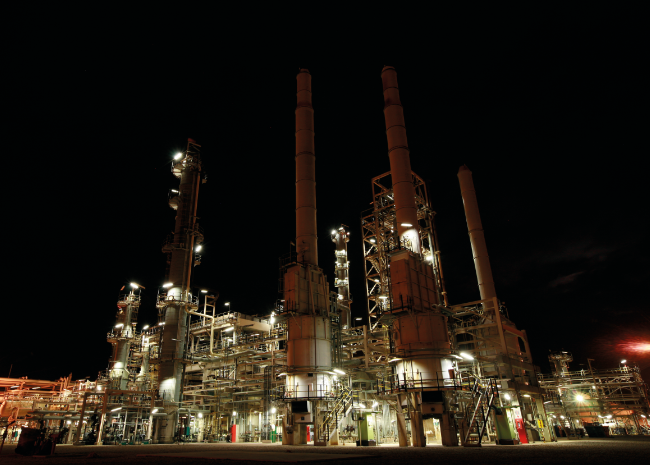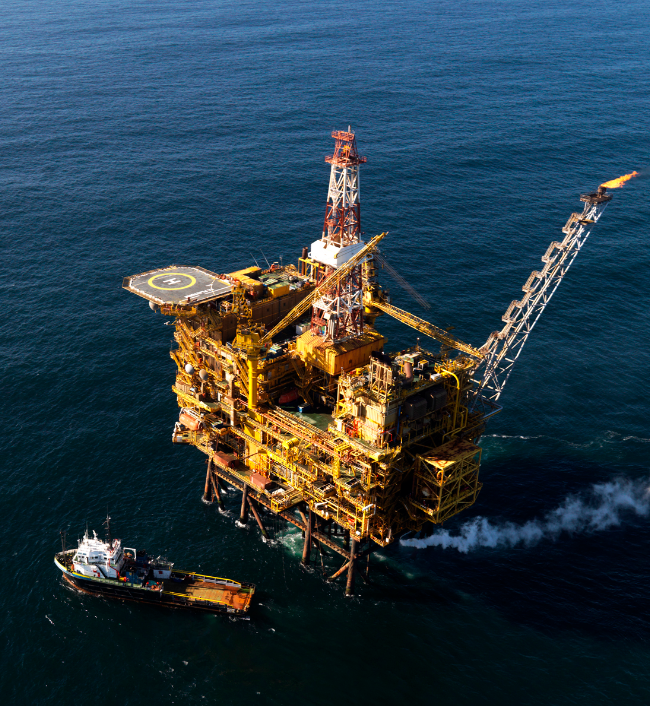A has one of the highest rates of unemployment and inequality in the world – and, at the same time, it’s one of the world’s most carbon-heavy economies. Coal dominates the national energy mix, contributing 80.1% of the national energy system demand in 2022; and its per capita emissions are 1.2 times the G20 average. Yet what if SA could harness alternative energy sources? Changing the energy mix would reduce the country’s reliance on carbon-heavy coal power while tapping into cleaner petroleum production and creating opportunities for jobs in the process.
Petroleum Agency SA (PASA) stands at the proverbial coalface of this. Mandated in terms of Section 70 of the Minerals and Petroleum Resources Development Act (MPRDA) of 2002 by the Minister of Mineral Resources and Energy, PASA evaluates SA’s petroleum resources and promotes the country’s prospectivity. ‘We have been delegated various first-tier functions relating to the acceptance and consideration of applications for petroleum rights and permits,’ says PASA COO Bongani Sayidini.
‘We perform an advisory and administrative role that includes receiving, evaluating and making recommendations to the Minister of Mineral Resources and Energy on applications for petroleum rights and permits, and monitoring compliance with such permits and rights. We also act as the custodian of the national petroleum exploration and production database.’

PASA has been particularly busy of late, as it works with the government to solve SA’s energy supply crisis. ‘There are at least 30 active exploration rights on- and offshore in the country, in various stages of exploration,’ says Sayidini. ‘This could prove that the country is endowed in oil and gas. We estimate that there are some 60 trillion cubic feet [tcf] of prospective gas resources along the south, west and east coasts of South Africa.’
According to the National Development Plan, 20 GW of electricity could be generated from just 24 tcf of gas, which is almost half of the country’s current electricity generating capacity. ‘We remain excited about the gas potential in South Africa, particularly from a national energy security perspective,’ says Sayidini. ‘The exploration and exploitation of these prospective gas resources could further aid the country’s transition towards net zero carbon emissions by 2050, provided all other fundamentals to support the development of gas are in place’.
PASA also estimates that the Karoo basin alone holds around 209 tcf of technically recoverable shale gas resources (the US Energy Information Administration puts its estimate even higher, at 390 tcf). ‘This is significant because this gas potential could seriously aid energy security of supply in the country.’
However, any enthusiasm about gas reserves in the Karoo must be tempered by concerns about the impact of extractive work on the region’s air, water and soil. Fracking in the Karoo basin continues to be a subject of significant controversy. ‘The use of large amounts of water and production of wastewater, induced seismicity, greenhouse gas emissions and groundwater contamination are real risks associated with hydraulic fracturing technology,’ says Sayidini. ‘However, these risks can be mitigated through appropriate regulations covering the full shale-gas life cycle. ‘Indeed, hydraulic fracturing has been used in the oil and gas industry for at least seven decades – since the 1940s – and, in the past 20 years, together with horizontal drilling, has been instrumental in making the exploitation of unconventional resources technically and economically viable.’
What’s more, communities and the environment will be protected by government regulations. Those regulations, says Sayidini, are one of the reasons why SA is so attractive to international oil and gas investors.
The licensing of petroleum rights in SA is governed by the MPRDA and related regulations. ‘It’s fairly straightforward and low-cost,’ says Sayidini, and that makes entry into the SA oil and gas sector easy. The country also has an attractive petroleum fiscal regime that, based on royalty and income tax, is linked to profits. ‘It is a neutral regime, with the state-take limited to the available economic rent, which thus ensures a satisfactory return on investment,’ he explains. ‘Further enhancing these regimes is the fiscal stability that is provided for in the Income Tax Act No 58 of 1962, with its various amendments, which in terms of the Tenth Schedule of the Act, allows the minister to enter into a binding agreement with any oil and gas company in respect of an oil and gas right to be held by that company. ‘Such an agreement will guarantee that the provisions of the schedule – at the date on which the agreement is concluded – will apply in respect of that right, for as long as the right is held by the company.’

With that in mind, SA’s first competitive auction for oil and gas resources will be held in 2024 or 2025, once the requisite legislation has passed. ‘We are potentially looking at a minimum of about 10 shale gas blocks in the Karoo that will be released through competitive bidding,’ says Sayidini. This includes acreage once held by oil and gas major Shell, whose 90 000 km² came available after it withdrew an application to explore.
PASA has undertaken a resource evaluation in the area, which confirms an active petroleum system in the Karoo. About 2 500 soil samples were sent overseas for analysis, says Sayidini. Those confirmed gas and even oil seepages, suggesting that there might even be potential for oil in the Karoo. ‘The exploration of this shale gas holds many potential benefits for South Africa in terms of energy security, economic growth and job creation,’ he says. ‘This will go a long way to reduce the country’s reliance on coal as a primary energy source accounting for at least 75% of electricity generation. The exploitation of shale gas could seriously reduce the nation’s carbon dioxide emissions and, in consequence, also lower its contribution to climate change.’
27 21 938 3500
plu@petroleumagencysa.com
www.petroleumagencysa.com









